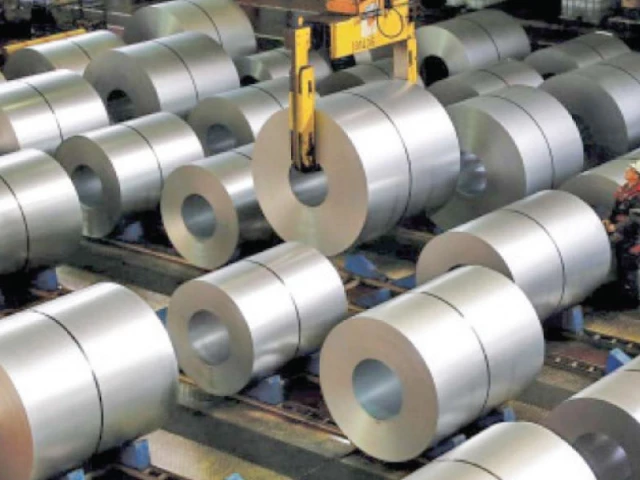ISLAMABAD – In a major step to support Pakistan’s struggling steel industry, the National Tariff Commission (NTC) has imposed a steep 40.47% anti-dumping duty on Galvalume steel imports — a move hailed as a breakthrough in Pakistan’s trade protection efforts.
This decision, announced after months of legal review and investigation, aims to stop foreign exporters from bypassing earlier anti-dumping duties by slightly altering the composition of their products. Local manufacturers like International Steels and Aisha Steel Mills had raised concerns that while duties had been placed on galvanised steel in the past, foreign suppliers began exporting a nearly identical product — Galvalume — to avoid the penalties.
Galvalume is essentially the same as galvanised steel, but with a zinc-aluminium coating instead of pure zinc. It performs the same function, competes directly in the local market, and was being used as a loophole to dodge the existing duties. That led to a significant dip in market share and profitability for Pakistan’s domestic steel makers.
The NTC launched an anti-circumvention probe — the first of its kind in the country — and concluded that these imports were undermining the effectiveness of earlier trade protections. Despite the minor changes in the product’s makeup, the commission found that Galvalume shared the same end uses, physical features, and production process as the original galvanised steel covered under anti-dumping rules.
With this ruling, the same 40.47% duty that applied to galvanised steel imports will now also be extended to Galvalume products, effectively sealing the gap that allowed exporters to sidestep the law.
Industry players and legal experts are calling it a landmark case — not just for the steel sector, but for Pakistan’s broader trade remedy system. Sumaira Kanwal, a senior manager at the law firm that pursued the case on behalf of local producers, said this was a proud moment for Pakistan’s legal and trade institutions. “It’s the first successful anti-circumvention case in our history — and a big win for fair competition,” she said.
Muhammad Awais Ashraf, Director Research at AKD Securities, noted that the decision could finally give local producers a fighting chance by curbing the flood of cheaper, undercutting imports. “But this will only work if the duty is implemented strictly and consistently,” he added.
For the steel industry — which has faced years of suppressed prices, stagnant growth, and shrinking profits — this decision offers a much-needed breath of relief and a hopeful path forward.




